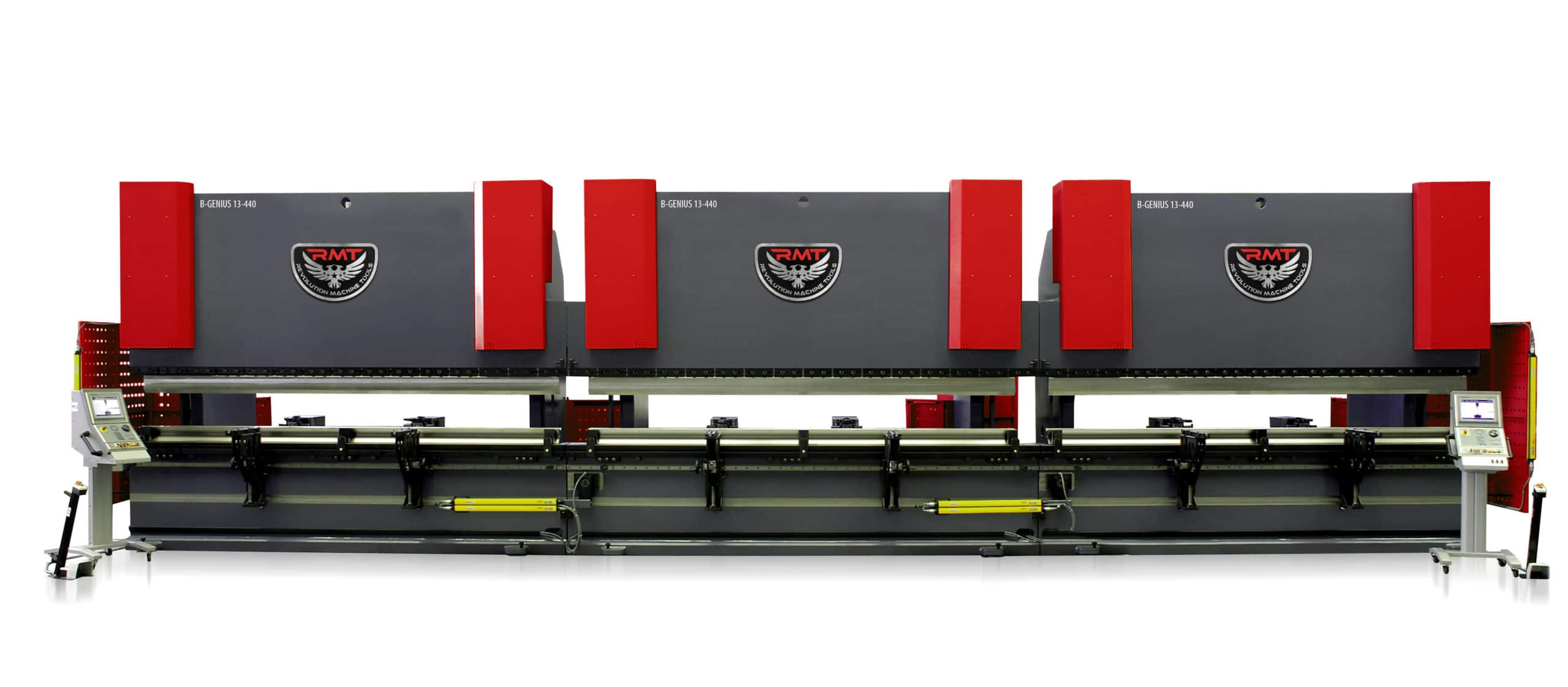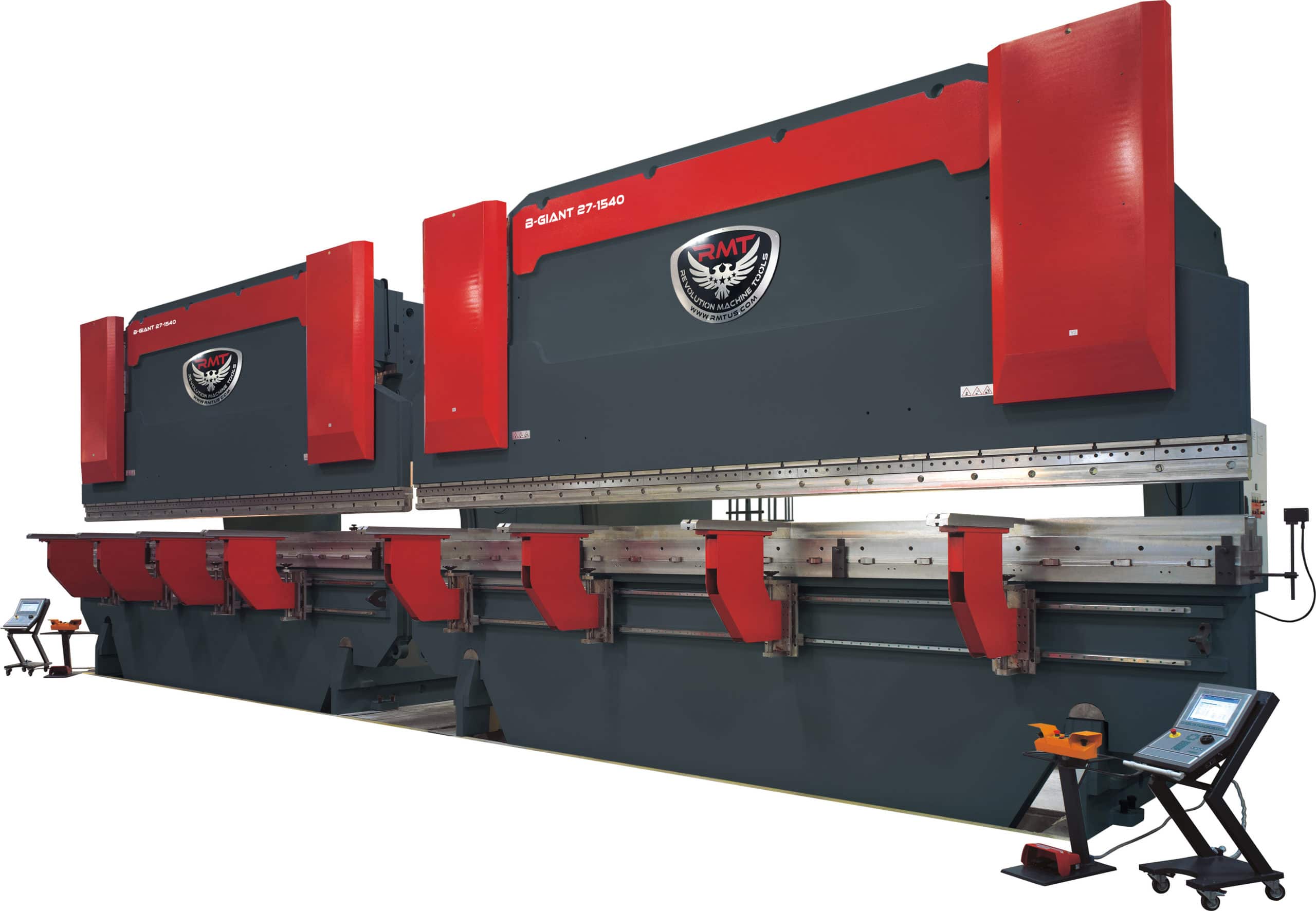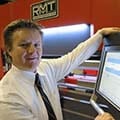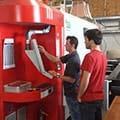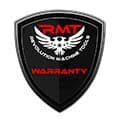Bigger Is Not Always an Improvement
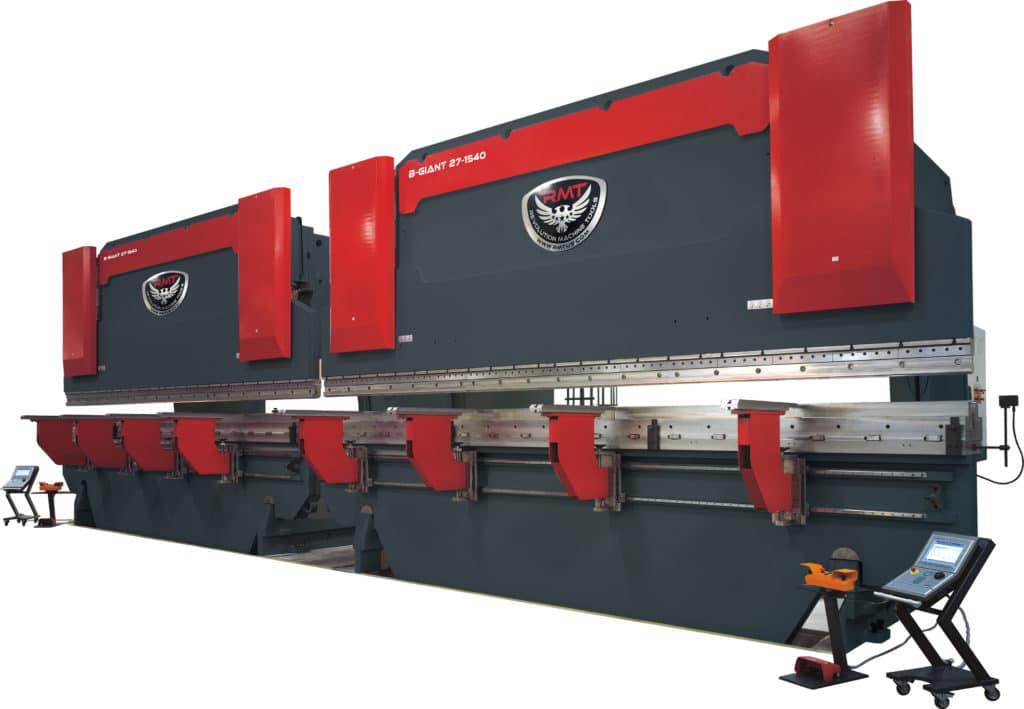
You’re a fabrication shop owner who’s used to doing lots of metal bending for customers. You bought a 12′ x 350-ton press brake just so you could handle the bigger jobs, but now a customer has requested something really long—a light pole that runs just shy of 28′. It’s not segmented, so it has to be run all at once, and the customer is ready to sign a contract guaranteeing repeat business on this project for the next several years, so it’s really not something you want to farm out to another shop.
Knowing the profit potential of this contract, there is only one option: buy new equipment. When you go shopping for a new press brake, however, you find that standard models run to about 14′, maybe 20′ from some manufacturers. Knowing that won’t work for your needs, you begin to investigate the massive specialized press brakes that can be found on the market. “Here’s one that’s 26′ long, but it clocks in at 2200 tons,” you say, realizing that this towering machine is overkill for your fairly lightweight part, while still a little shy of your needed length.
“I need something longer,” you tell your local machine tool consultant. He might suggest getting a custom model built to your length, though the tonnage will be even greater. If he suggests this without asking you about your project—or worse, after he’s asked you about it—it’s time to find a new salesman.
A good consultant will point out that you don’t need a bigger machine—just a longer one at a “normal” tonnage. “They don’t make one!” you might protest. The wise consultant will then just smile and show you something that you may not have considered before—tandem press brakes.
Two’s Company—Three May Be Better
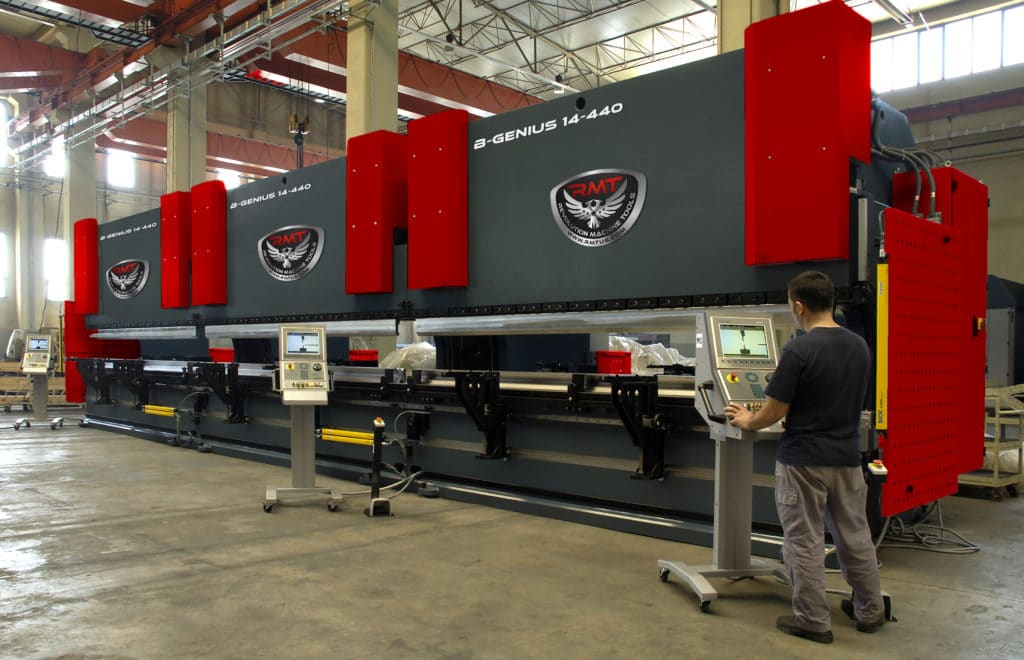
Two—or more—press brakes can be coupled to work in tandem with each other, giving the user greater bending length without requiring either the extreme cost or the expanded space needed for a giant press brake.
With the advent of hydraulic press brake technology, along with the development of computer numeric controls (CNC for short), precise control of immense bending power went from a pipe dream to being established as the norm in the majority of serious metal fabrication shops. Tandem, trio and even quad brake configurations make use of CNC precision to synchronize the machines into an orchestra of metal-bending perfection.
Components like linear encoders and press brake scales constantly gauge the exact positions of each ram and relay that data to the control so it can appropriately coordinate the Y1 and Y2 positions of all rams. Just as a single CNC press brake harmonizes both sides of a ram by reading two scales, tandem, trio and quad brake controllers read four, six or eight scales and accurately control the depth of all points along the combined ram.
The added requirements of proper calibration at set-up and very strict maintenance to keep all machines running at the same level of efficiency are offset by the incredible versatility brought by using press brakes in compound arrangements.
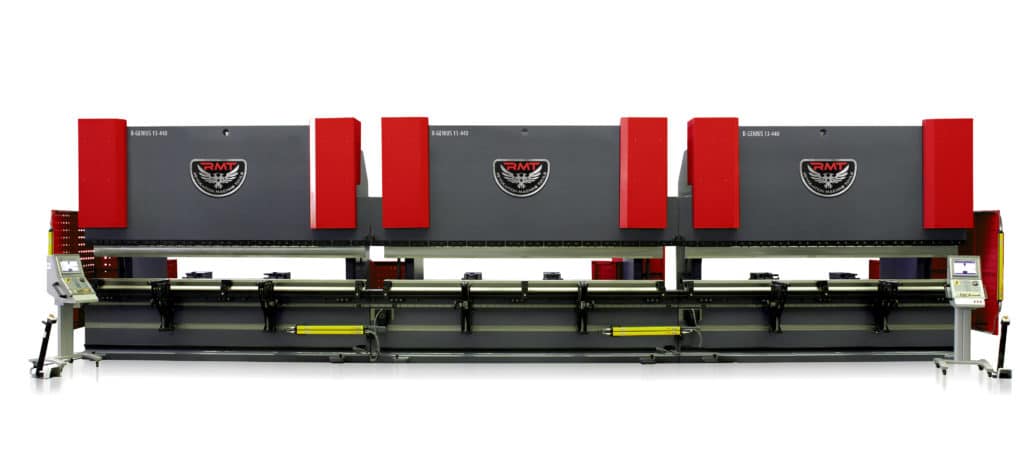
Benefits of Multiple Brake Configurations
While a drawback of using multiple brakes is part depth—each machine still has its own side housings that can interfere with bending wide parts—there are several advantages of using press brakes in tandem.
- Installation. Not only are tandem brakes cheaper and have a smaller footprint than a single enormous press brake, they are also much easier to install. Most facilities require significant alterations in order to transport in and even to operate a large-scale brake. Some companies have opted to have a reinforced foundation poured in an open area to accommodate a large press brake, then construct a new building around it! By contrast, no specialized rigging is needed when multiple regular-size brakes are purchased.
- Speed. A single large brake requires more time to perform a bend than smaller brakes in tandem. For a shop that is trying to maintain its productivity, faster is always better!
- Flexibility. Most multiple brake configurations are set up with multiple controls so that they can still be operated separately. A single CNC station is used for tandem operations, then separate controls can be engaged when needed so that the brakes can independently produce different smaller parts at the same time, doubling output.
- Accuracy. All CNC hydraulic press brakes are precision instruments, but the bigger the ram, the slightly less exact the control of it will be. Two or more smaller machines, with multiple hydraulic valves, scales and linear encoders combined along their length, will allow the CNC to have even more accurate control of the operation.
- Sharing. Most controls installed on multiple configuration machines permit the programming for part bending to be shared between them. Only one CNC would have to be programmed for a shorter part that all of the brakes could then produce.
- Down Time. When one of the brakes used in tandem goes down, the other can stay in operation making smaller parts. Production can continue on other projects, keeping the shop afloat while repairs are being made.
When looking to make long bends, always be sure to consider the option of multiple press brakes run in tandem.
